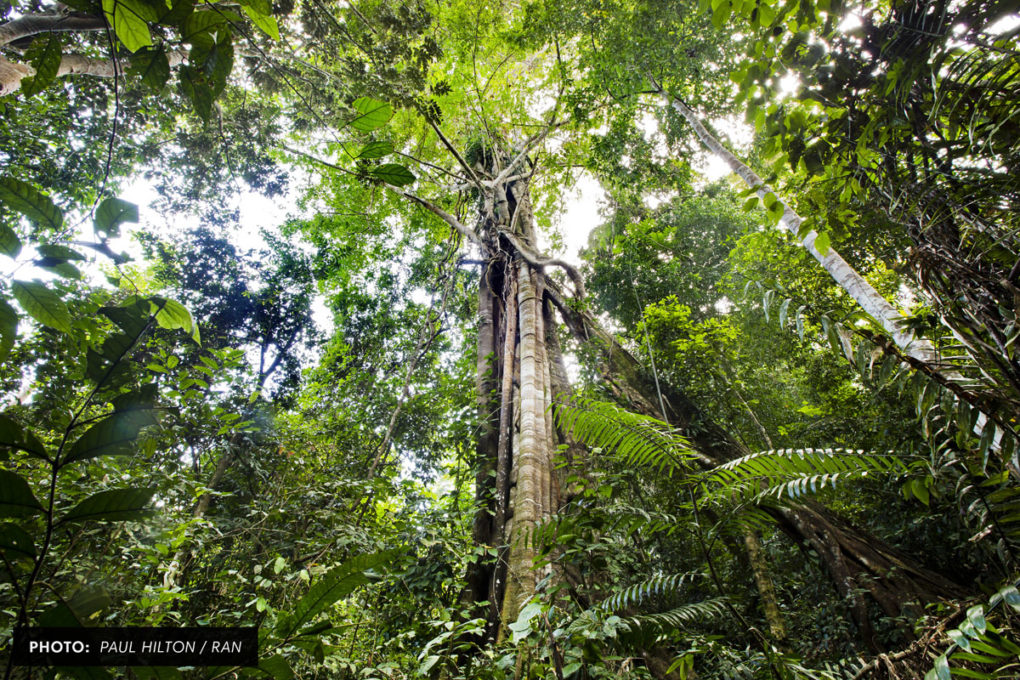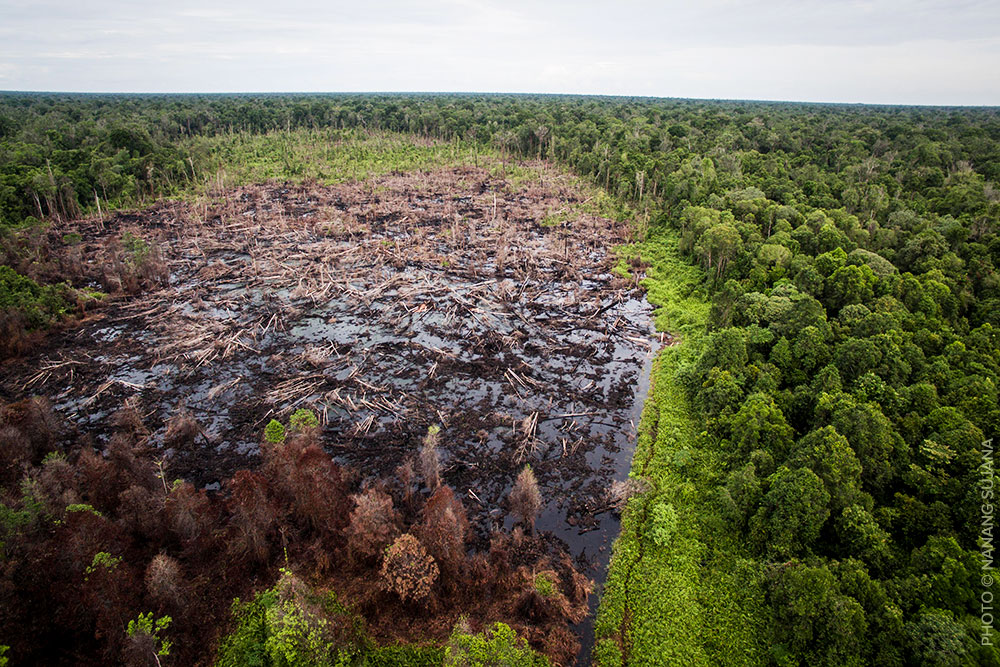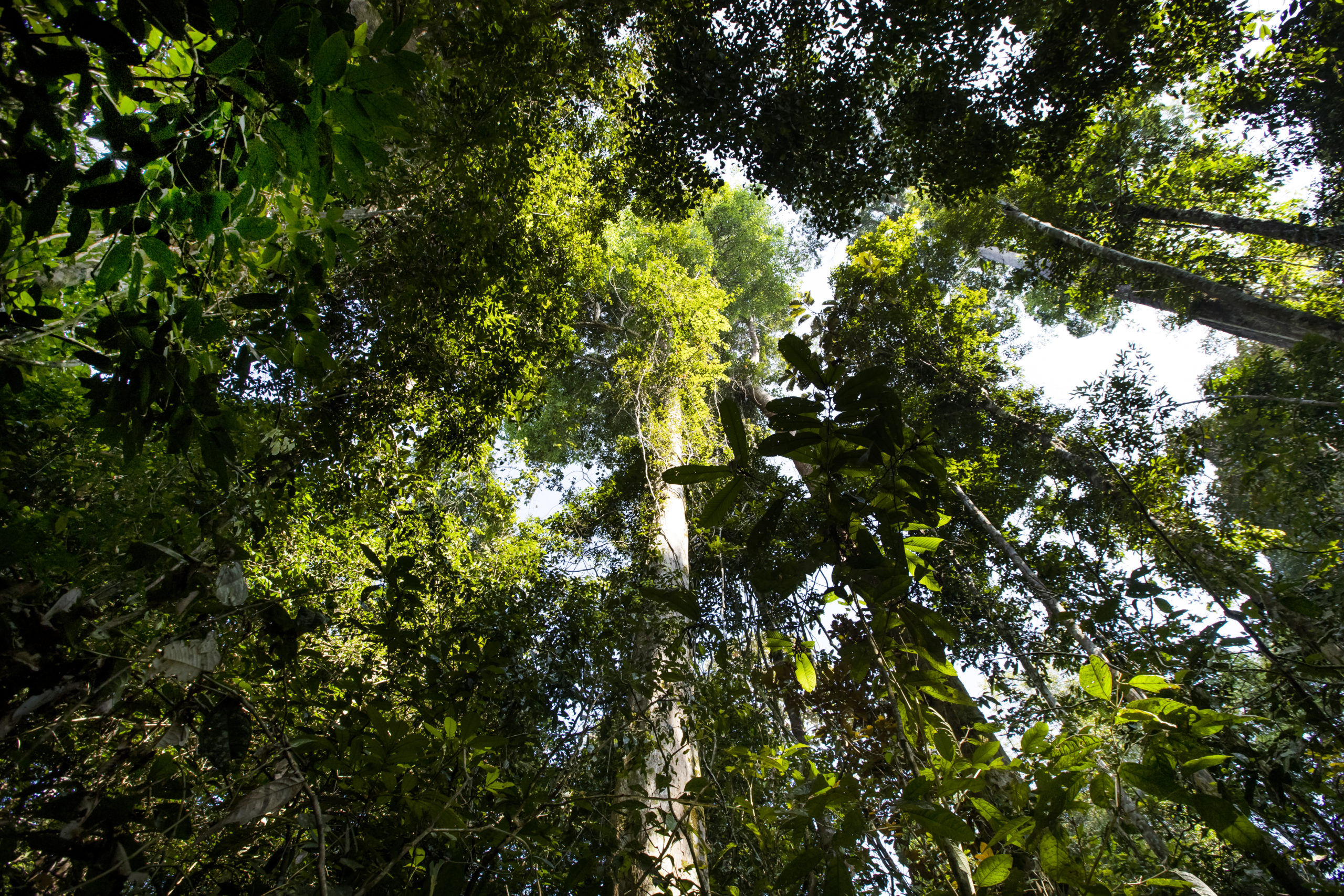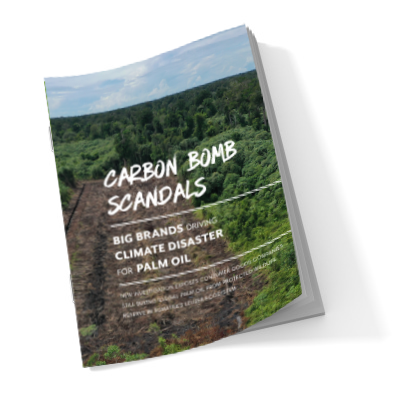The most effective and efficient way to protect forest ecosystems is to protect the land rights of the Indigenous and frontline communities who depend on them. Science and history have proven this over and over again. Indigenous Peoples’ and local communities’ customary territories are estimated to contain 36% of the world’s remaining intact forest landscapes. One of the best ways to keep forests standing is to secure legal recognition of the rights for customary communities to manage their forests and protect them from corporate exploitation for plantations, mines, and other developments.
This year, RAN celebrated major wins for the protection of forests and the communities who steward the land.
Curbing Deforestation in Indonesia, including the Leuser Ecosystem

RAN’s market campaigns have contributed to curbing some of the worst deforestation in Indonesia, including the Leuser Ecosystem, one of the most critical and most biodiverse rainforests on the planet. Protection of the Leuser Ecosystem’s lowland rainforests, peatlands, and biodiversity from destruction caused by palm oil expansion has been a major focus for our forest program and has yielded tremendous results over the past decade. We have seen a steady decline in deforestation across the 6 million acre landscape––and within palm oil concessions in Aceh––and can make a direct correlation that RAN and our frontline partners’ work over the last decade has contributed to this outcome.
Aceh Communities Set to Receive Government Recognition of Customary Land Rights
-

Degraded peatland inside Singkil Swamp Nature Reserve. South of Aceh.
In August, it was announced by the Government of Indonesia that traditional communities in the Sumatran province of Aceh may soon receive formal recognition of their customary rights — a historic first for the region. There are many communities across Aceh, including in and around the Leuser Ecosystem, that are awaiting the recognition of their customary rights by government authorities. Determination of customary forests is an important step because the government must recognize these rights in order for Indigenous and traditional communities to have legal rights to manage their forests.
Global Precedent on Corporate Responsibility to Protect Human Rights Defenders
In September, multinational packaged consumer goods company Unilever — after over a decade of negotiations and being exposed for RAN’s forest campaigns — published a new Human Rights Defender policy and implementation guide. The document defines the company’s commitment to support Human Rights Defenders that are under increasing risk from agricultural supply chains. Most importantly, the consumer goods giant has laid out a step-by-step guide to the implementation of a dedicated policy on protecting Human Rights Defenders. This is a global first for a multinational corporation that has a significant footprint in the tropical rainforest regions where Human Rights Defenders are under increasing attack and civic space is shrinking.
Unilever has set an important precedent that must now be followed by its peers in the Consumer Goods Forum, a global organization of more than 400 consumer goods companies across 70 countries. Major brands like Procter & Gamble, Nestlé, PepsiCo, Ferrero, Mars, Mondelēz, Colgate Palmolive, Kao, and Nissin Foods all lack dedicated, detailed policies and procedures on Human Rights Defenders — and we will be pressuring them to do better.

